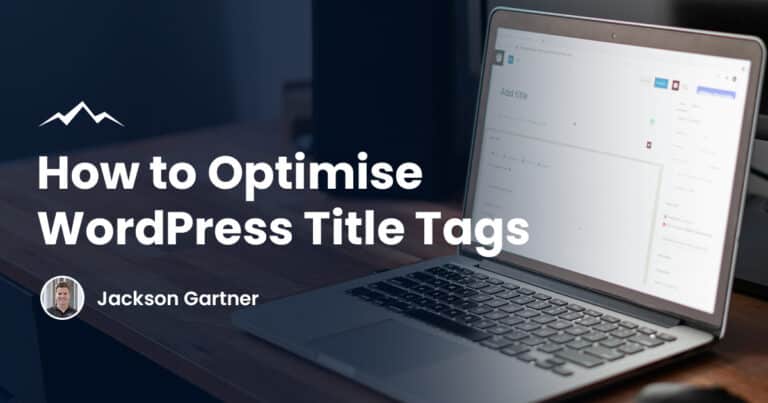Website hosting is a service that provides the necessary resources for websites to be accessible on the internet. In simpler terms, it’s the process of storing and maintaining your website’s files on a server so that users can access them online.
So, what is website hosting?
What is a Website Host?
A web host is a company that provides the infrastructure, services, and technology needed to store and deliver website files and make them available on the internet.
They typically offer various hosting solutions such as shared, VPS, dedicated, and cloud hosting to cater to different website requirements and budgets.
To ensure your website is accessible to your audience online, website hosting is required.
By choosing a trustworthy and dependable website hosting provider, your site will remain available and accessible, delivering a seamless experience to your visitors.
How to Host a Website
To host a website, you’ll need to follow these general steps:
- Choose a web hosting provider: Pick a reputable web hosting company that suits your needs and budget. Consider factors like uptime, speed, customer support, and scalability when making your decision.
- Select a hosting plan: Hosting providers offer various plans tailored to different website requirements. Evaluate your needs and choose a plan that best fits your website’s size, traffic, and future growth.
- Register a domain name: A domain name is the web address that users will type into their browsers to access your website. Register a unique and memorable domain name with a domain registrar.
- Create your website: Design and develop your website using a website builder, content management system (CMS) like WordPress, or custom code.
- Upload your website files: Connect your website to the hosting server using FTP, and upload your website files to the server.
- Point your domain to the server: Configure your domain’s DNS settings to point to the hosting server’s IP address.
- Launch your website: Once your website is uploaded and connected to your domain, it’s live on the internet for users to access.

Types of Website Hosting
There are several types of website hosting services available, catering to different website needs and budgets:
Shared Hosting
Shared hosting is the most affordable option, where multiple websites share resources on a single server. This is suitable for small websites and blogs with low traffic.
- Cost-effective
- Limited resources
- Potential performance issues due to shared resources
Shared hosting is the most budget-friendly option, with plans often starting from as low as $2 to $10 per month. Keep in mind that resources are limited due to shared servers.
VPS Hosting
Virtual Private Server (VPS) hosting offers more control and resources than shared hosting, as websites are hosted on a virtual server with dedicated resources.
- Improved performance
- Greater control over server settings
- Scalable resources
- Slightly more expensive than shared hosting
VPS hosting offers more resources and control, with pricing typically ranging from $20 to $100 per month, depending on the resources and features included in the plan.
Dedicated Hosting
Dedicated hosting provides an entire physical server exclusively for your website, offering the highest level of control, performance, and security.
- Maximum performance and control
- Dedicated resources
- Enhanced security
- Most expensive option
Dedicated hosting provides an exclusive server for your website, with prices generally starting at $100 per month and going up to $500 or more, based on the server specifications.
Cloud Hosting
Cloud hosting uses a network of servers to host your website, ensuring redundancy, scalability, and performance.
- Highly scalable
- Redundant infrastructure
- Pay-as-you-go pricing
- Improved uptime and performance
Cloud hosting is known for its scalable pricing structure, with plans often starting around $10 per month and increasing based on the resources you consume.
Factors to Consider When Choosing a Web Host
When selecting a web host, consider these key factors to ensure you choose the right provider for your website:
Performance and Uptime
A reliable web host should offer excellent performance and uptime to ensure your website is always accessible to visitors. Look for providers that guarantee at least 99.9% uptime and have a solid reputation for fast load times.
Security Features
Website security should be a top priority. Choose a hosting provider that offers robust security measures, such as firewalls, malware scanning, SSL certificates, and secure server infrastructure.
Customer Support
Responsive and knowledgeable customer support is essential when dealing with technical issues or needing assistance with your hosting plan. Look for providers that offer 24/7 support through multiple channels, such as live chat, phone, and email.
Pricing and Scalability
Select a hosting plan that fits your budget without sacrificing crucial features. Keep in mind your website’s potential growth and choose a provider that offers easily scalable plans to accommodate increased traffic and resource demands in the future.
Essential Website Hosting Features
Look for these essential hosting features when selecting a provider:
- SSL certificates for secure connections
- One-click installations for popular CMS platforms
- Automatic backups to protect your data
- Email hosting for custom domain email addresses

Managed vs. Unmanaged Hosting
Understanding the difference between managed and unmanaged hosting can help you make an informed decision when selecting a hosting provider.
Managed Hosting
Managed hosting means that the provider takes care of server maintenance, updates, and security, allowing you to focus on your website’s content and growth.
- Hassle-free server management
- Technical support and assistance
- Usually more expensive than unmanaged hosting
Unmanaged Hosting
Unmanaged hosting requires you to manage server maintenance, updates, and security on your own. This option is suitable for those with technical expertise or a dedicated IT team.
- Greater control over server settings
- Lower cost compared to managed hosting
- Requires technical knowledge and time investment
Migration and Scaling Your Website
As your website grows, you may need to migrate to a new hosting provider or upgrade your plan for increased resources. Look for providers offering seamless migration services and scalable hosting plans to accommodate your website’s growth.
With these additional sub-headings, your blog post offers a comprehensive and informative resource for readers, enhancing its SEO value and user experience.
You find find out more about how long it takes to migrate a website here.
Domain Names and Web Hosting
Domain names serve as the web address for your website and are an essential component of establishing an online presence. When you register a domain name, you need to connect it to your web host so that visitors can access your website.
To link your domain name to your hosting provider, update the Domain Name System (DNS) settings in your domain registrar’s control panel with the nameservers provided by your web host. This process ensures that when visitors type your domain name into their browser, they are directed to the server hosting your website files.
Remember to renew your domain name periodically to maintain ownership and keep it connected to your web host.
Recommended WordPress Hosting Providers
In order to use the open-source version of WordPress.org you need to organise your own website hosting, check out this article if you’d like to build a WordPress site without hosting.
SiteGround
SiteGround is a popular hosting provider known for its exceptional performance, reliability, and customer support. With a range of hosting plans tailored for WordPress websites, SiteGround ensures your site runs smoothly and securely.
- Excellent performance and uptime
- Free SSL certificates for added security
- Automatic daily backups
- One-click WordPress installation
- 24/7 customer support
Kinsta
Kinsta is a premium managed WordPress hosting provider focused on delivering top-notch performance and security for your website. Powered by Google Cloud Platform, Kinsta is an excellent choice for high-traffic and demanding websites.
- Fast and scalable infrastructure
- Free SSL certificates and CDN integration
- Automatic daily backups
- Expert WordPress support available 24/7
- One-click staging environments
Both SiteGround and Kinsta are reliable and reputable WordPress hosting providers, offering an array of features and benefits to cater to various website needs. Consider your website’s specific requirements and budget when choosing between these two providers.
If you’d like help making the right hosting choice for your WordPress site, you’re more then welcome to reach out to our WordPress experts here.
Wrapping Up
Grasping the concept of website hosting is vital for setting up and sustaining a prosperous online presence.
To make the best choice of hosting provider and plan, weigh factors such as performance, security, customer support, and scalability.
Moreover, handling your domain name and fine-tuning your website’s security and performance play a significant role in delivering a fast and smooth user experience.
With this knowledge under your belt, you’re now better equipped to make well-informed decisions about website hosting and are ready to cultivate a flourishing online presence for your brand or business.
If you’d like to find out more about website hosting, don’t hesitate to reach out to our web design team anytime!
To your success,
Jackson




